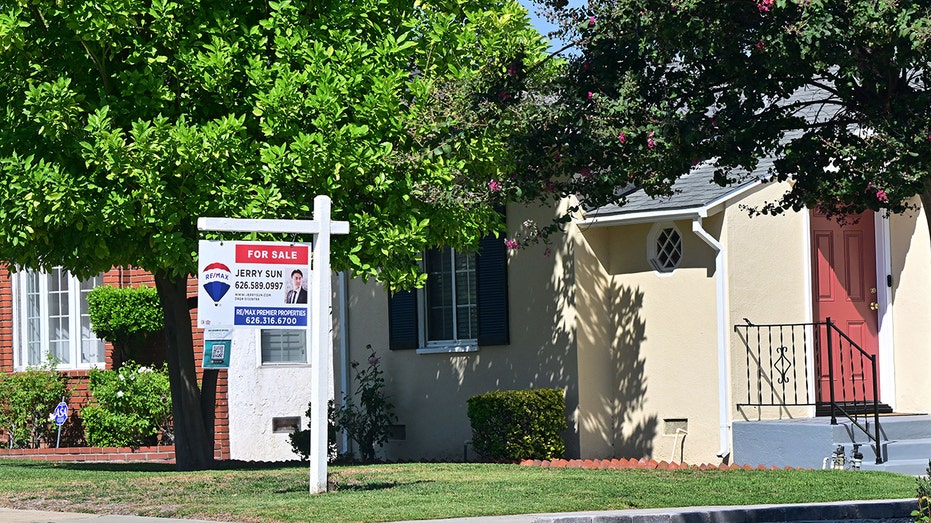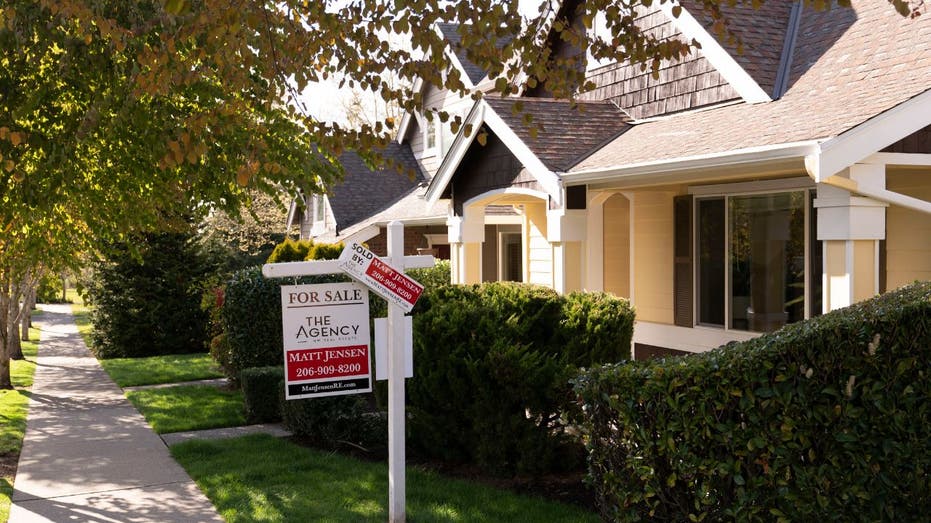Percentage of US mortgages considered 'seriously underwater' rises
Share of 'seriously underwater' mortgages rose in 1st quarter in 37 states, per ATTOM report
Michael Kramer on increasing home prices
The Mott Capital Management founder and CEO weighs in on home price expectations and gives his market outlook.
A new report finds that the percentage of U.S. mortgages considered to be "seriously underwater" rose in the first quarter of 2024, while the proportion of "equity-rich" mortgages fell for the third consecutive quarter.
The report by property and real estate data firm ATTOM found that the portion of mortgaged homes that were seriously underwater rose slightly in the first quarter of 2024 from 2.6% to 2.7% of all residential mortgages. It defines "seriously underwater" as mortgages with a loan-to-value ratio of 125% or more, meaning property owners owe at least 25% more than the estimated market value of the property.
The trend of seriously underwater mortgages increasing prevailed in 37 states during the first quarter, with the largest increases relative to the fourth quarter of 2023 coming in Kentucky, up from two percentage points to 8.3%; West Virginia, up one point to 5.4%; Oklahoma, up from 5.5% to 6.1%; Arkansas, up half a point to 5.7%; and Delaware, up from 2.3% to 2.7%.
There were also notable decreases in the percentage of seriously underwater mortgages in several states from Q4 2023 to Q1 2024, including Missouri, down from 5.6% to 4.5%; Mississippi, down from 8% to 7.1%; Arizona, down from 1.9% to 1.6%; and Hawaii, down from 1.7% to 1.6%.
RENTERS FEAR THEY'LL NEVER OWN A HOME: FED SURVEY

The share of "seriously underwater" mortgages rose in the first quarter in 37 states. (Frederic J. Brown / AFP / File / Getty Images)
States with the largest shares of seriously underwater mortgages were Louisiana (11.3%) and Wyoming (8.8%), followed by Kentucky, Mississippi and Oklahoma. The states with the smallest shares of seriously underwater mortgages were Vermont (0.8%); Rhode Island and New Hampshire (1.1% each); California (1.2%); and Massachusetts (1.3%).
Among 107 metropolitan areas with populations greater than 500,000 residents, the metros with the largest shares of mortgages that were seriously underwater were Baton Rouge (13.4%) and New Orleans (7.3%) in Louisiana, followed by Jackson, Mississippi (6.5%), Little Rock, Arkansas (6%) and Syracuse, New York (5.6%).
BUYERS ARE TAKING ON RISKIER ADJUSTABLE RATE MORTGAGES AS AFFORDABILITY WORSENS

Mortgages are considered "seriously underwater" by the ATTOM report if they have a loan-to-value ratio greater than 125%. (David Ryder / Bloomberg / File / Getty Images)
The percentage of residential mortgages that were considered "equity-rich" — meaning that owners had a loan-to-value ratio of 50% or lower, so the owner has at least 50% equity — in Q1 2024 slid to 45.8%, a decline from 46.1% in the prior quarter and 47.2% from Q1 2023. That means the national proportion of equity-rich mortgages hit the lowest level in two years.
Equity-rich levels declined in 26 states on a quarterly basis and 25 states from the same quarter a year ago. The largest quarterly declines were mainly in Kentucky, 28.7% from 35.4%; South Carolina, 40% from 42.4%; Georgia, 43.7% from 46%; and Delaware, 37.2% from 39.4%.
MORTGAGE RATES TICK DOWN TO 7.09%

The share of equity-rich mortgages declined in 26 states on a quarterly basis and 25 states on a year-over-year basis. (David Paul Morris / Bloomberg / File / Getty Images)
States where the level of equity-rich mortgages increased the most on a quarterly basis were South Dakota, up from 49.8% to 51.5%; Hawaii, up one and a half points to 56.5%; Montana, 57.3% to 58.7%; North Dakota, 30.4% to 31.5%; and Mississippi, up one point to 38.3%.
"Homeowner balance sheets continue to benefit in a huge way from the boom times in the form of elevated equity that can be used to finance all kinds of things, from home renovations to business startups," ATTOM CEO Rob Barber said in a statement. "Still, the windfalls are starting to erode bit by bit amid mounting signs that the market is no longer so superheated."
GET FOX BUSINESS ON THE GO BY CLICKING HERE
"It's too early to make any broad statements about the market direction, especially coming off the typically slower Fall and Winter months. But amid the recent trends, this year's Spring buying season will be of heightened importance in telling us if there is a new long-term market pattern developing," Barber added.

